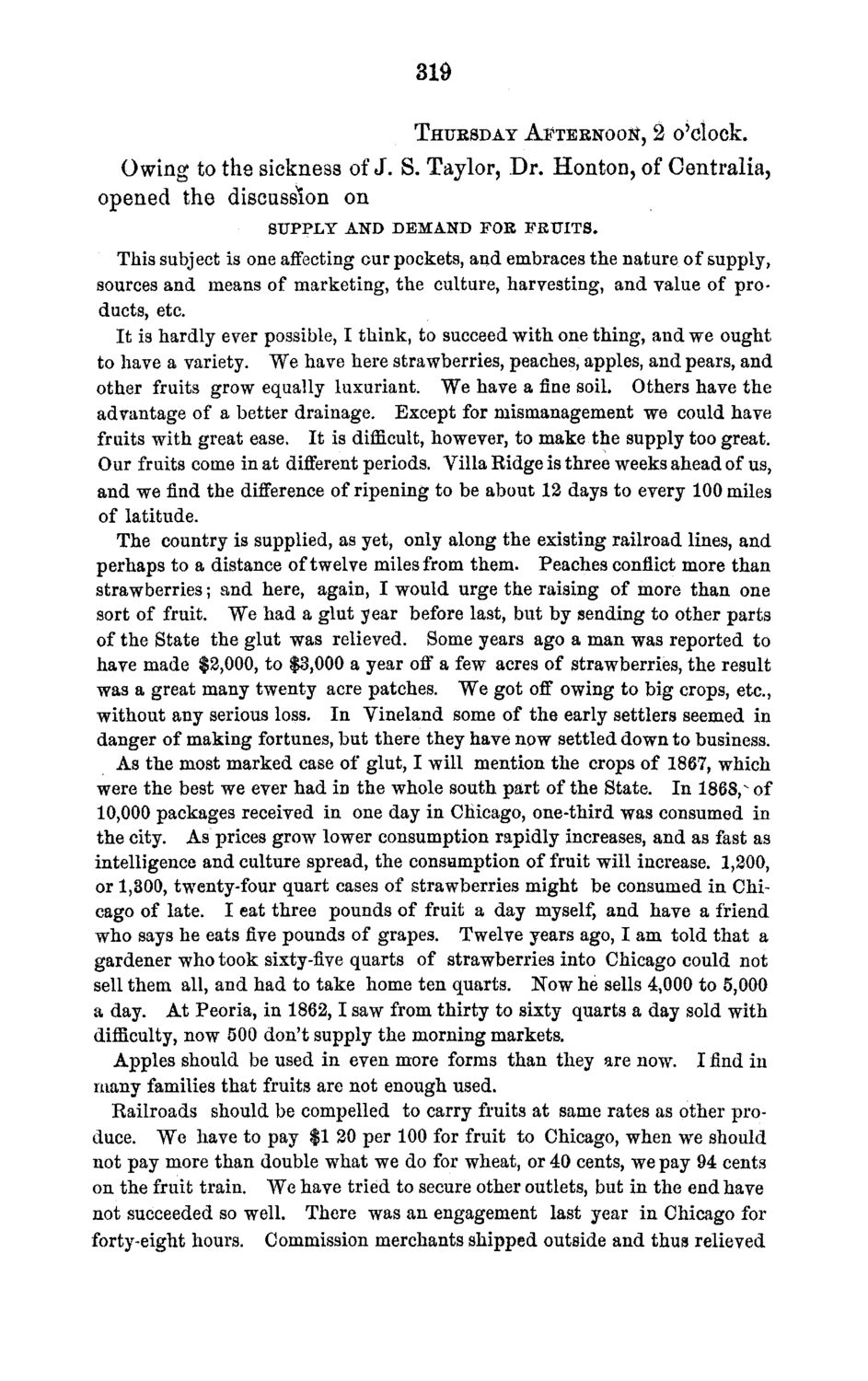| |
| |
Caption: Board of Trustees Minutes - 1870
This is a reduced-resolution page image for fast online browsing.

EXTRACTED TEXT FROM PAGE:
319 THURSDAY AFTERNOON, 2 o'clock. Owing to the sickness of J. S. Taylor, Dr. Honton, of Centralia, opened the discussion on SUPPLY AND DEMAND FOR F R U I T S . This subject is one affecting our pockets, and embraces the nature of supply, sources and means of marketing, the culture, harvesting, and value of products, etc. It is hardly ever possible, I think, to succeed with one thing, and we ought to have a variety. We have here strawberries, peaches, apples, and pears, and other fruits grow equally luxuriant. We have a fine soil. Others have the advantage of a better drainage. Except for mismanagement we could have fruits with great ease. It is difficult, however, to make the supply too great. Our fruits come in at different periods. Villa Ridge is three weeks ahead of us, and we find the difference of ripening to be about 12 days to every 100 miles of latitude. The country is supplied, as yet, only along the existing railroad lines, and perhaps to a distance of twelve miles from them. Peaches conflict more than strawberries; and here, again, I would urge the raising of more than one sort of fruit. We had a glut year before last, but by sending to other parts of the State the glut was relieved. Some years ago a man was reported to have made $2,000, to $3,000 a year off a few acres of strawberries, the result was a great many twenty acre patches. We got off owing to big crops, etc., without any serious loss. In Vineland some of the early settlers seemed in danger of making fortunes, but there they have now settled down to business. As the most marked case of glut, I will mention the crops of 1867, which were the best we ever had in the whole south part of the State. In 1868," of 10,000 packages received in one day in Chicago, one-third was consumed in the city. As prices grow lower consumption rapidly increases, and as fast as intelligence and culture spread, the consumption of fruit will increase. 1,200, or 1,300, twenty-four quart cases of strawberries might be consumed in Chicago of late. I eat three pounds of fruit a day myself, and have a friend who says he eats five pounds of grapes. Twelve years ago, I am told that a gardener who took sixty-five quarts of strawberries into Chicago could not sell them all, and had to take home ten quarts. Now he sells 4,000 to 5,000 a day. At Peoria, in 1862,1 saw from thirty to sixty quarts a day sold with difficulty, now 500 don't supply the morning markets. Apples should be used in even more forms than they are now. I find in many families that fruits are not enough used. Railroads should be compelled to carry fruits at same rates as other produce. We have to pay $1 20 per 100 for fruit to Chicago, when we should not pay more than double what we do for wheat, or 40 cents, we pay 94 cents on the fruit train. We have tried to secure other outlets, but in the end have not succeeded so well. There was an engagement last year in Chicago for forty-eight hours. Commission merchants shipped outside and thus relieved
| |